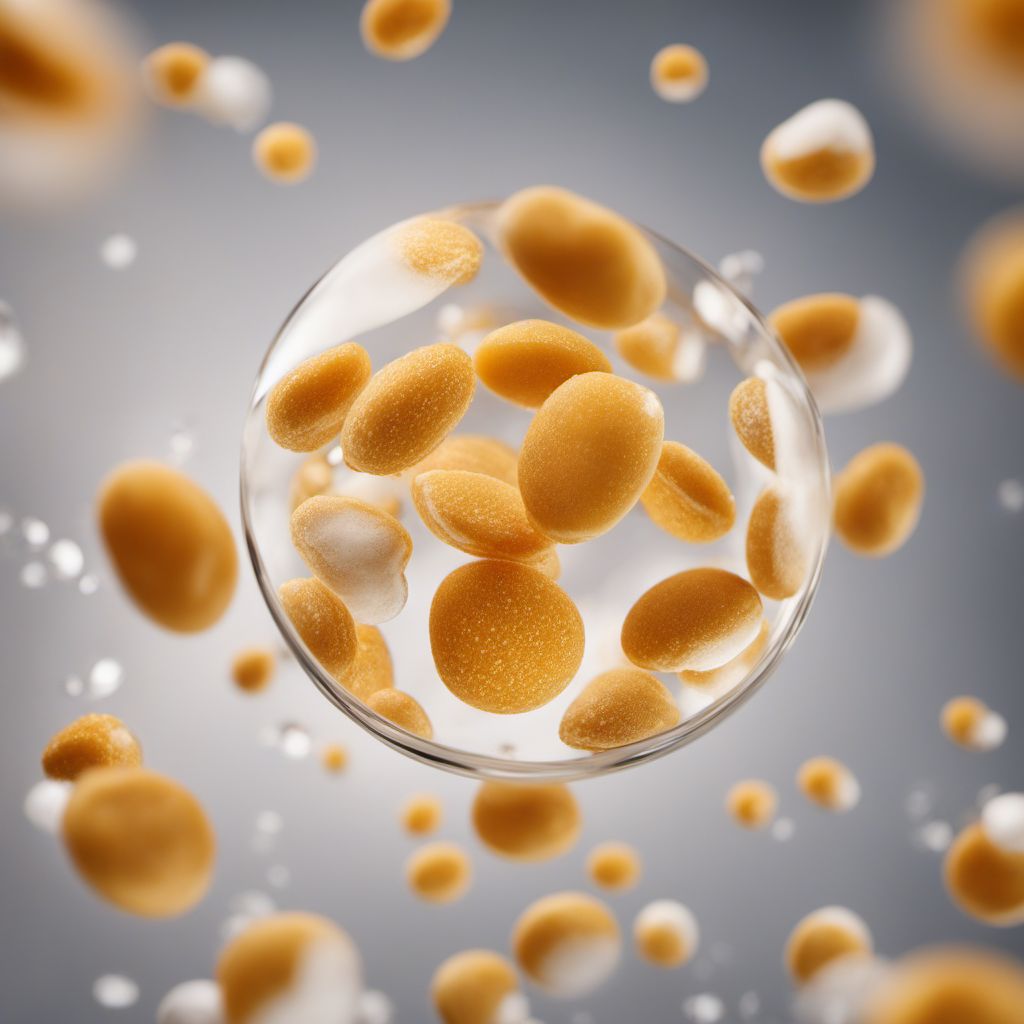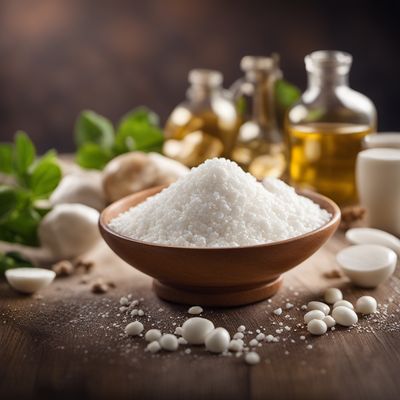
Ingredient
Calcium
The Mighty Mineral: Unleashing the Power of Calcium
Calcium is a mineral that is vital for the human body, accounting for approximately 1-2% of an adult's body weight. It is a soft, silvery-white metal that is highly reactive and is never found in its pure form in nature. In culinary terms, calcium is most commonly encountered in the form of calcium carbonate, which is a white, odorless powder. It has a neutral taste and does not contribute any distinct flavor to dishes. Calcium carbonate is insoluble in water but can be dissolved in acidic solutions, making it a versatile ingredient in various culinary preparations. Its texture depends on the form it is used in, ranging from fine powder to granules or larger chunks.
Origins and history
Calcium is one of the most abundant elements on Earth and is found in various minerals, rocks, and even in the human body. It has a rich historical background, with evidence of its use dating back to ancient civilizations such as the Egyptians and Greeks. Calcium-rich foods like milk and cheese have been consumed for centuries, with the importance of calcium for bone health recognized even in ancient times.
Nutritional information
Calcium is a vital nutrient for the body, supporting bone health, muscle function, and nerve transmission. It is essential for the development and maintenance of strong bones and teeth. Additionally, calcium plays a role in blood clotting, hormone secretion, and maintaining a regular heartbeat. One teaspoon of calcium carbonate contains approximately 1,000-1,200 milligrams of calcium.
Allergens
Calcium itself is not known to cause allergies. However, some individuals may be allergic to certain calcium supplements or fortified foods, so it is important to read labels and consult with a healthcare professional if any concerns arise.
How to select
When purchasing calcium supplements or fortified foods, it is important to look for reputable brands that adhere to quality standards. For natural food sources of calcium, such as dairy products or leafy greens, choose fresh and organic options whenever possible. Check for any signs of spoilage or damage before purchasing.
Storage recommendations
Calcium supplements should be stored according to the manufacturer's instructions. For calcium-rich foods, such as dairy products, it is important to follow proper storage guidelines. Keep them refrigerated at the recommended temperature to maintain their freshness and quality.
How to produce
Calcium cannot be produced by amateurs as it is a naturally occurring mineral. However, individuals can ensure they consume adequate amounts of calcium through a balanced diet that includes calcium-rich foods.
Preparation tips
Calcium carbonate is commonly used as a dietary supplement or as an ingredient in baking, where it acts as a leavening agent. It can also be used to fortify foods and beverages. When using calcium carbonate in cooking or baking, it is important to follow the recipe instructions and measurements accurately. It is advisable to consult a healthcare professional or a registered dietitian for guidance on appropriate calcium supplementation.
Culinary uses
Calcium is commonly used in the culinary world as a dietary supplement, fortifying agent, and leavening agent. It is often added to baked goods, such as bread and cakes, to improve their texture and rise. Calcium-rich foods like milk, cheese, and yogurt are widely used in various cuisines for their nutritional value and versatility in cooking.
Availability
Calcium is commonly available worldwide, both in the form of supplements and naturally occurring in foods. It is cultivated in many countries and can be found in grocery stores, supermarkets, and health food stores.
More ingredients from this category » Browse all

Chromium
The Mighty Mineral: Unveiling the Power of Chromium

Manganese
The Mighty Mineral: Unveiling the Power of Manganese

Iodine
"The Essential Element: Unveiling the Power of Iodine"

Zinc
The Mighty Mineral: Unleashing the Power of Zinc

Molybdenum
The Essential Trace Mineral

Iron
The Mighty Mineral: Iron

Bromine
The Versatile Element of Bromine

Phosphorus
The Essential Mineral

Selenium
"The Mighty Mineral: Unleashing the Power of Selenium"

Fluorine
"The Mighty Element: Unleashing the Power of Fluorine"

Magnesium
"The Mighty Mineral: Unleashing the Power of Magnesium"

Copper
The Versatile Element: Unleashing the Power of Copper